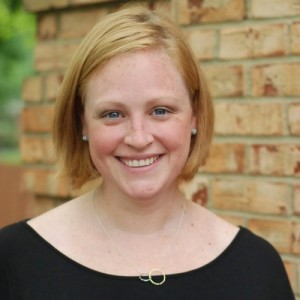This is the latest in the Speaker Academy series, which started here. The series is addressed to patients and advocates who basically know how to speak on a subject but want to make a business out of it. I’ll try to be clear to all readers, but parts may assume you’ve read earlier entries.
A great moment just happened, and I say “great” because it brings together two big factors in the Speaker Academy series here:
- If patient voices are a cornerstone of the future of medicine (as the Institute of Medicine says), they need to be actively supported in their participation. Otherwise, the future will be built on whatever scraps people find for free.
- But from the patient perspective, complaining about it doesn’t get us anywhere. As I said in Speaker Academy #6, to a committed change agent, the useful question is: “What could be said that would make any difference?”
Well, Speaker Academy pal Erin Moore just knocked one out of the park. Speaking last week at two events in DC (for free), she had an occasion arise where she spoke effectively – in fact I’d say she knocked it out of the park!
Here’s a cross-post of her news, with permission, from her blog 66 Roses. Change agents, take note.
______________
Last week I traveled to Washington, DC for two meetings. One was on the important role that patients & caregivers plan in understanding medication adherence, and the other was on patients and caregivers being involved as disruptive innovators in healthcare; both topics very close to my heart. While I was reimbursed for my travel expenses (less alcohol), I was not compensated for my time. I struggle with this. Part of me gets angry because my time is valuable, to a lot of people, and I want these folks to see and appreciate that. The other part of me wants to be heard, no matter the compensation.
During one of the meetings, I participated as a panelist and shared on the role that I play on our healthcare team. I view myself as a partner, and I work with different tools that our doctor has recommended (medications, medical devices) and with tools that I’ve found or created to manage Drew’s health as best I can. I think that our message was well received, that by partnering in care, meeting patients where they are rather than where you want them to be, has meaning. And patients who are meaningfully engaged in their own care have a better chance at a good outcomes.
One of the final questions that the audience asked us was what ideas we have for getting more people like us involved at every level, and I countered with a question. I asked this audience, made up of doctors and other clinicians, pharmacists, admirals and even representatives from the Surgeon Generals office, how many of them had to use vacation time to attend the meeting today. No one raised their hand. Patients and caregivers are asked to give up time in their already full and complicated schedules to help out these healthcare professionals. Meaningful engagement would be asking patients to be a part of the team, recognizing the value that they bring to the table, and showing them that you appreciate them through respect and compensation.
Last week, after scanning receipts and filling out forms for reimbursement, I got the most amazing email:
“I wanted to reach out to you to let you know that your comments regarding your participation at our meeting being not part of your ‘job’ did not fall on deaf ears. In addition to your time at the meeting, you also spent a lot of time planning prior to the meeting and working with us after the meeting to work through your expense reimbursement. Our team would like to compensate you for your time. We will include an honorarium for you for your time with your expense reimbursement.
In addition, one of our Co-Investigators put forth a very thoughtful suggestion to propose to the Steering Committee, a policy to compensate patients/patient advocates/caregivers (not paid by an organization) when they participate in one of our events. If the Steering Committee agrees to this policy change, our program as a whole will not overlook compensating important contributions of patients and caregivers at future meetings.
To be compensated for my time is great. For my message to be heard, for others to recognize and appreciate the value of patients and caregivers sitting at the table for these critical discussions that will be fundamental to the changing culture of healthcare, that is an amazing feeling. I have the utmost respect for this organization, and hope that their actions will be seen and replicated by others.
____________
Okay, Academy cadets, what do you see in how she handled this? Discuss.
Next in the series: #18: Client Honor Roll – great and valued business partners



[…] #17: “Your message did not fall on deaf ears.” […]